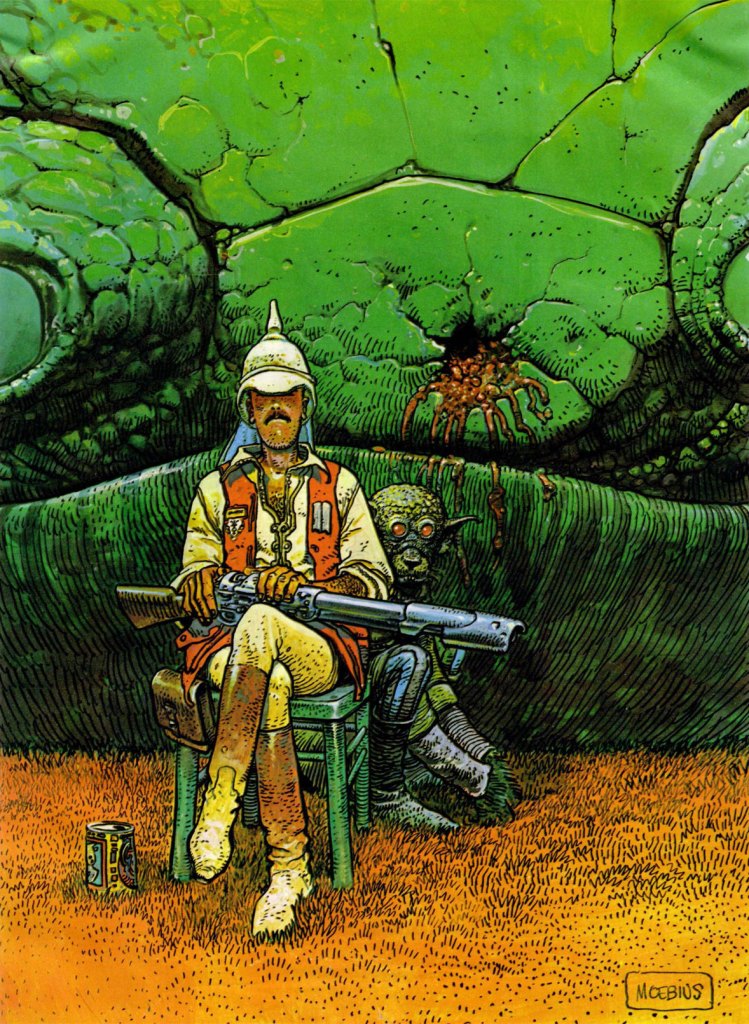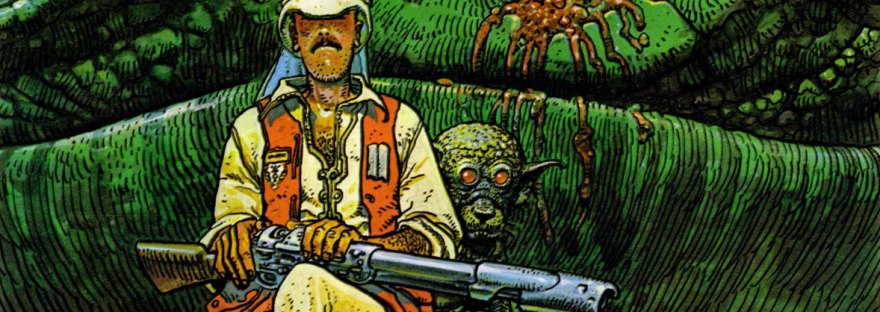
From the AD&D 2e Dungeon Master’s Guide:
Since this isn’t a combat game, the rules are not ultra-detailed, defining the exact effect of every blow, the subtle differences between obscure weapons, the location of every piece of armor on the body, or the horrifying results of an actual sword fight. Too many rules slow down play (taking away from the real adventure) and restrict imagination. How much fun is it when a character, ready to try an amazing and heroic deed, is told, “You can’t do that because it’s against the rules.”
Cook, 51
“Players should be allowed to try whatever they want–especially if what they want will add to the spirit of adventure and excitement. Just remember that there is a difference between trying and succeeding.
“To have the most fun playing the AD&D game, don’t rely only on the rules . . .”
One of the most common refrains from modern players – especially from those who dislike D&D – is that the game is nothing more than a combat simulator, and a poor one at that. Yet here is Zeb Cook, the man who helped reshape the game during its second iteration telling us all, explicitly, that the game is not a combat game.
So why do so many people insist that it is?
In looking at the argument most often people say that the game focuses the majority of its energy on combat, which is certainly true. But in doing so they often forget that the game gives wide latitude to their players to change it and to experiment along the way. As Zeb wrote:
Players should be allowed to try whatever they want–especially if what they want will add to the spirit of adventure and excitement. Just remember that there is a difference between trying and succeeding.”
Cook, 51
It’s that spirit of the game that is so often overlooked in the argument that the game is just a combat game.
Dungeons & Dragons has always been a game that encourages players to explore what’s possible. Early games had guns, lasers, tanks, and everything from hysterical inside jokes to deep explorations of serious topics. The games stretched the boundaries of what could be and in so doing people began making new games that helped push those boundaries further.
The rules are guidelines but they aren’t sacrosanct. Every rule can be changed, bent, and discarded. New rules can be created – and should be. The game can stand it because that’s what it’s always done.
Works Cited:
Cook, David “Zeb.” Advanced Dungeons & Dragons 2nd Edition Dungeon Master Guide. TSR, Inc. 1993. pg 51


Perhaps that was the intent but I’ve rarely seen that in practice. I recently played in a (thankfully) short campaign run by a good friend and the game felt like a series of random, essentially meaningless monster fights.
In addition, when we found a way to overcome a terrain obstacle, the GM said he wouldn’t nickel and dime us about getting across the area now that we knew how and then proceeded to do just that. I had to make at least three rolls to effectively cross the distance when it was supposedly no longer an issue.
This is GM who has run numerous Star Trek Adventures scenarios for us that have been great. So if it isn’t the GM, I have to assume its the game. D&D is indeed a mindset, whether that was the intention or not. It isn’t so much a Combat game as a game that encourages combat and doesn’t really encourage other approaches.
How much XP is a clever remark worth if it makes the whole table laugh or say, ‘Ooh!’. Does exceptional role-playing improve my chances of fooling the guard and by that I mean mechanically?
D&D can do and be a lot more than a Combat game and you can use a hammer to pry open a paint can. Of course, that’s not what a hammer is for. It’s for hammering in nails.
LikeLike
Hm.
I think about the nickel and dime aspect of D&D a lot and I think it comes back to 3e. Once we had all of these skills listed – even though the books told us we didn’t need to check for simple things – it became a situation where we felt like we had to have people make extra rolls. If you’ve got skill points in something it feels like you should be asked to make a check. And that feeling is stupid and wrong.
I’ve got to think a bit more about this.
LikeLike